Edycja 2021
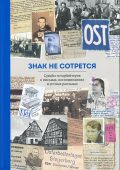
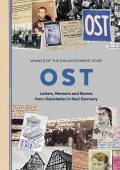
The Jan Michalski Prize for Literature 2021 has been awarded to Memorial International, Alena Kozlova, Nikolai Mikhailov, Irina Ostrovskaya and Irina Scherbakova for the collective work Знак не сотрется. Судьбы остарбайтеров в письмах, воспоминаниях и устных рассказах (Мемориа́л, 2016), translated from the Russian by Georgia Thomson under the title OST: Letters, Memoirs and Stories from Ostarbeiter in Nazi Germany (Granta, 2021).
The jury commended “the hard work by the Russian non-government organisation, Memorial International, that went into restoring the historical truth through this reference book documenting the destiny of millions of Ostarbeiter, and accomplishes the complex task of preserving oral history from obliteration and misappropriation. By providing a written record of the voices of civil society in a situation where history is rewritten according to political context, the work OST creates an essential memorial for the future of our society which must preserve the memories and use them well in order to confront their current challenges.”
The term Ostarbeiter, literally “workers from the East”, is used to define citizens of Eastern Europe, notably of the Soviet Union who were deported and subjected to compulsory labour throughout the Third Reich’s territory following the occupation of their countries by the Nazis in 1941. Between three and five million mainly Ukrainians, Poles, Belarussians, Russians, Tatars, most of them under the age of 18, were sent to work in factories, mines, farms and as domestic servants. As well as being taken from their families and distinguished from other compulsory workers by the badge “OST” sewn onto their clothing, they encountered working conditions closely approximating slavery – hard work, living in closed camps under constant surveillance, undernourishment, lack of hygiene and care, humiliations and punishment, despite the few acts of kindness from German civilians.
Almost half of these adolescents were girls who were also subjected to sexual violence, from which arose tens of thousands of unwanted pregnancies. Many died of starvation, exhaustion and bombing raids as they were not allowed access to bomb shelters, or from other abuse when they were not simply executed by their Nazi camp guards.
At the end of the war, more than 2.5 million Ostarbeiter were repatriated to the URSS, where they had to face a double traumatism. Already grappling with the totalitarian Stalinist system which suspected them of being traitors to the homeland, they were subjected to interrogations in so-called “filtration” camps, judged and frequently condemned to various punishments for having “collaborated with the enemy”. Some were sent to the Gulag for “re-education”; others were enrolled in the Red Army or in the contingents of workers assigned to rebuilding the nation’s economy. These repatriates were never considered as victims or heroes of the Second World War. They lived with the weight of fear and guilt and were subjected to surveillance, disgrace and were socially ostracized for several decades following their return. Furthermore, they had to suffer the State’s deliberately orchestrated silence.
It is only since the 1990s that the question of the Ostarbeiter has found its place on the public stage; first through the initiative of the Greens in the German Bundestag before the Russian non-governmental organisation, Memorial, which works to obtain the moral and legal rehabilitation of people subject to political oppression in the URSS, the current Russian state and the countries of the old Eastern Block, set out to have them recognized.
Winner of the Enlightener Prize 2017 in Russia and now of the Jan Michalski Prize for Literature, the book OST: Letters, Memoirs and Stories from Ostarbeiter in Nazi Germany is the fruit of a long-term undertaking led by Memorial International and its staff who have gathered numerous archives – including photographs, correspondence and diaries – and taped hundreds of hours of interviews with former Ostarbeiter, in order to exhaustively document what they suffered during their captivity and what they had to live through on their return to their homeland. By compiling, putting all this testimony in order and in context, the book breaks the silence of a slice of history of the 20th Century and provides a collective memory of the tragic and complex destiny of the Ostarbeiter.
The Jan Michalski Prize 2021 awards Memorial International, Alena Kozlova, Nikolai Mikhailov, Irina Ostrovskaya and Irina Scherbakova an amount of CHF 50,000.00 as well as a work of art chosen for each of them: an ink drawing by the artist Frédéric Pajak.
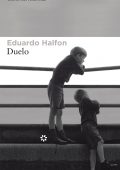
Duelo,
Libros del Asteroide, Barcelona, 2017
Zgłoszony przez Lídia Jorge
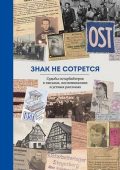
Знак не сотрется. Судьбы остарбайтеров в письмах, воспоминаниях и устных рассказах
Мемориа́л, Москва, 2016
Zgłoszony przez Ludmiła Ulicka

White Hot Light : Twenty-five Years in Emergency Medicine,
Harper Perennial, New York, 2020
Zgłoszony przez Siri Hustvedt
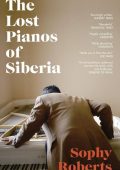
The Lost Pianos of Siberia,
Doubleday, London, 2020
Zgłoszony przez Vera Michalski-Hoffmann

Duelo,
Libros del Asteroide, Barcelona, 2017
Zgłoszony przez Lídia Jorge

Остарбейтеры,
Мемориа́л, Москва, 2016
Zgłoszony przez Ludmiła Ulicka
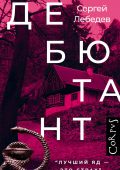
Дебютант,
Corpus, Москва, 2020
Zgłoszony przez Carsten Jensen

White Hot Light : Twenty-five Years in Emergency Medicine,
Harper Perennial, New York, 2020
Zgłoszony przez Siri Hustvedt

The Lost Pianos of Siberia,
Doubleday, London, 2020
Zgłoszony przez Vera Michalski-Hoffmann

Three Rings: a Tale of Exile, Narrative and Fate,
University of Virginia Press, Charlottesville, 2020
Zgłoszony przez Vera Michalski-Hoffmann

Duelo,
Libros del Asteroide, Barcelona, 2017
Zgłoszony przez Lídia Jorge
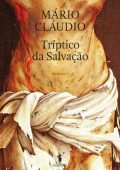
Tríptico da Salvação,
Dom Quixote, Alfragide, 2019
Zgłoszony przez Lídia Jorge
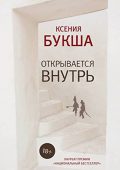
Открывается внутрь,
Аст, Москва, 2018
Zgłoszony przez Ludmiła Ulicka

Остарбейтеры,
Мемориа́л, Москва, 2016
Zgłoszony przez Ludmiła Ulicka
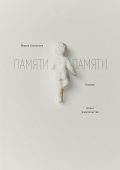
Памяти памяти, Новое издательство,
Москва, 2018
Zgłoszony przez Tomasz Rozycki

Verzeichnis einiger Verluste,
Suhrkamp, Berlin, 2018
Zgłoszony przez Tomasz Rozycki

Дебютант,
Corpus, Москва, 2020
Zgłoszony przez Carsten Jensen

Qui a tué mon père,
Seuil, Paris, 2018
Zgłoszony przez Carsten Jensen

Gérard : cinq années dans les pattes de Depardieu,
Dargaud, Paris, 2018
Zgłoszony przez Jul (Julien Berjeaut)

Une année exemplaire,
Lisa Mandel, 2020
Zgłoszony przez Jul (Julien Berjeaut)
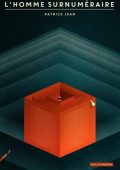
L’homme surnuméraire,
Rue Fromentin, Paris, 2017
Zgłoszony przez Benoît Duteurtre

Les grands cerfs,
Grasset, Paris, 2019
Zgłoszony przez Benoît Duteurtre

El libro de Ana,
Siruela, Madrid, 2016
Zgłoszony przez Siri Hustvedt

White Hot Light : Twenty-five Years in Emergency Medicine,
Harper Perennial, New York, 2020
Zgłoszony przez Siri Hustvedt
